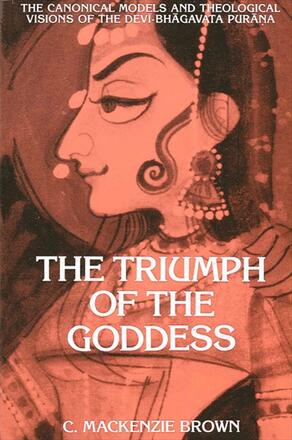
The Triumph of the Goddess
The Canonical Models and Theological Visions of the Devī-Bhāgavata Purāna
Alternative formats available from:
Description
The authors of the Devī-Bhāgavata Purāna endeavored to demonstrate the superiority of the Devī over competing masculine deities, and to articulate in new ways the manifold nature of the Goddess. Brown's book sets out to examine how the Purana pursues these ends. The Devī-Bhāgavata employs many ancient myths and motifs from older masculine theologies, incorporating them into a thoroughly "feminized" theological framework. The text also seeks to supplant older "masculine" canonical authorities. Part I of Brown's study explores these strategies by focusing on the Purana's self-conscious endeavor to supersede the famous VaisBhagavata Purana.
The Devī-Bhāgavata also re-envisions older mythological traditions about the Goddess, especially those in the first great Sanskritic glorification of the Goddess, the Devi-Mahatmya. Brown shows in Part II how this re-envisioning process transforms the Devī from a primarily martial and erotic goddess into the World-Mother of infinite compassion.
Part III examines the Devi Gita, the philosophical climax of the Purana modeled upon the Bhagavad Gita. The Devi Gita, while affirming that ultimate reality is the divine Mother, avows that her highest form as consciousness encompasses all gender, thereby suggesting the final triumph of the Goddess. It is not simply that She is superior to the male gods, but rather that She transcends Her own sexuality without denying it.
C. MacKenzie Brown is Professor of Religion, Trinity University.
Reviews
"In this Puran the apotheosis of the Goddess in India is most fully presented. Given the intense interest in the Goddess, and in goddesses generally, it is important to have Brown's close study of the Devi-Bhagavata. One entire area of readership will be those interested in the construction of the Ultimate Reality on feminine terms." -- Diana L. Eck, Harvard University
"He has accomplished an unprecedented task, that of seeing this Puran's vision whole, against its historical backdrop, with a sharp eye for how its vision reworks familiar material. The scope and importance of what he accomplishes should not be underestimated. Hindu worship of the Goddess has been especially resistant to historical analysis and is therefore of particular interest, both to indologists and to those with an interest in gender studies." -- Thomas B. Coburn, St. Lawrence University